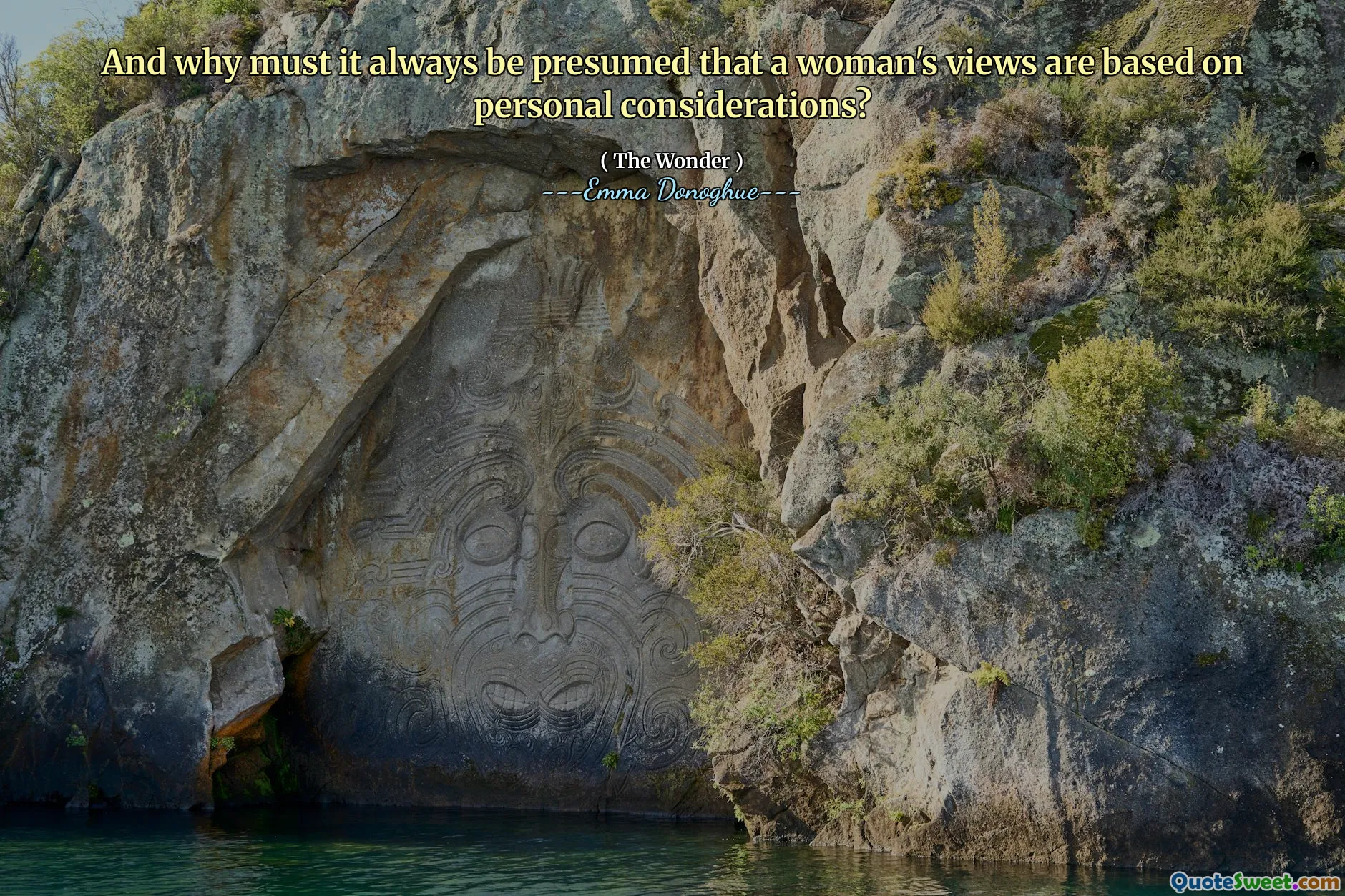
And why must it always be presumed that a woman's views are based on personal considerations?
This quote raises a critical question about gender bias and societal perceptions of women's opinions. It challenges the default assumption that women often speak or act based on personal motives, dismissing their perspectives as subjective or less valid. Such presumption reflects underlying gender stereotypes and ingrained prejudices that undermine women's credibility and agency. In the context of Emma Donoghue's novel 'The Wonder,' themes of perception, societal judgment, and understanding are central. Women’s voices have historically been marginalized or dismissed, often attributed to emotionality or personal bias rather than rational thought. This quote compels us to examine how societal structures and cultural narratives shape our expectations and judgments about women’s thoughts and actions. It urges readers to question these assumptions and recognize the importance of authentic, unbiased listening to women's voices. In a broader sense, the quote underscores a persistent need for society to challenge its stereotypes and promote equality in dialogue and decision-making. The notion that women's views are often unjustly minimized or misinterpreted not only perpetuates inequality but also deprives us of valuable insights and diversity of thought. Breaking down these presuppositions can lead to more genuine understanding and a more equitable social fabric. It also encourages introspection about our own biases and the importance of respecting each individual's perspective, regardless of gender. Ultimately, the quote emphasizes the need for fairness and openness in perceiving and valuing the opinions of women, recognizing them as equal contributors to societal discourse.






